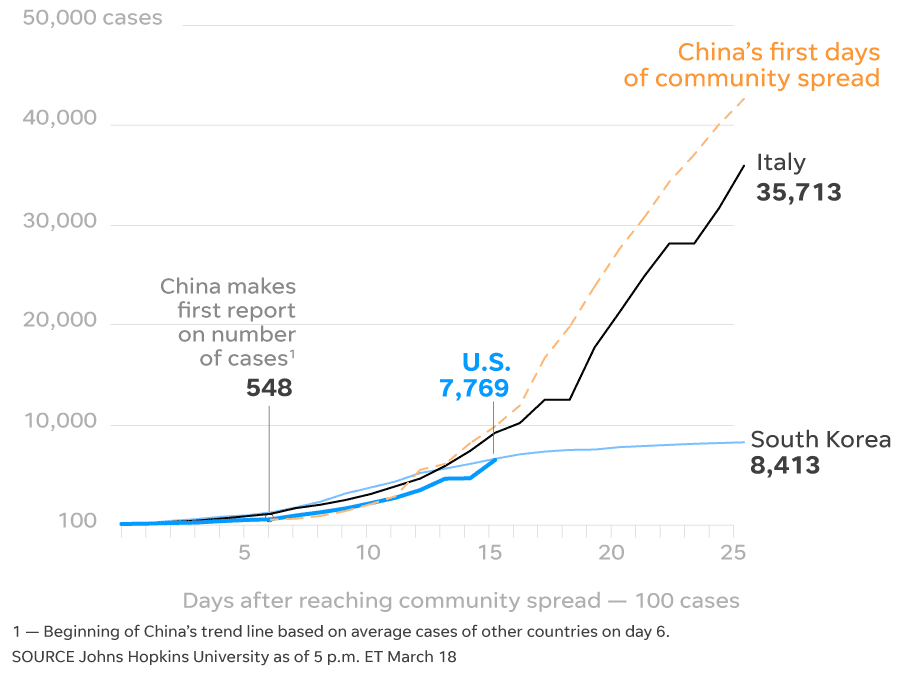 Coronavirus quarantine treats can
Coronavirus quarantine treats can
be shipped to you
In the U.S., 115 people have died amid more than 7,300 confirmed cases as of Wednesday, according to Johns Hopkins University's data dashboard.
Coronavirus crisis: Trump invokes wartime authority of Defense Production Act
Estimates vary, but most public health experts believe that the U.S. is between one and two weeks behind what has befallen Italy, where a near-total lockdown has been imposed on 60 million citizens, with only supermarkets and drug stores open to the public. As of Wednesday, there have been more than 31,500 cases and 2,500 deaths.
Italian authorities began enforcing their lockdown on March 12, some 18 days after the point where community transmission, defined as more than 100 cases, had taken hold, according to World Health Organization data analyzed by USA TODAY.
It's too early to say whether restrictions in Italy, and similar ones in Spain, are working.
Collins said that if the U.S. takes measures that many Americans might find overly drastic "we should certainly be able to blunt" the U.S. curve. "But let's be clear: There's going to be a very rough road ahead of us over the next weeks and months."
In China, where COVID-19 originated, the outbreak followed a pattern similar to Italy's.
The country initially saw an exponential rise in infections.
Beijing ordered a complete lockdown in Wuhan and other cities in Hubei province on Jan. 23, about halfway into the first 25 days of reported community transmission.
 Medical
staff members arrive for a duty shift at Dongsan Hospital in Daegu,
South Korea, Wednesday, March 18, 2020. For most people, the new
coronavirus...
Medical
staff members arrive for a duty shift at Dongsan Hospital in Daegu,
South Korea, Wednesday, March 18, 2020. For most people, the new
coronavirus...
No one knows whether a second wave of infections will occur amid the easing restrictions.
In South Korea, which has a robust screening program, with more than 200,000 people tested – about one in every 250 people – testing is fast (about 10 minutes) and free (the government pays) and the results are usually sent by text within 24 hours. It was the first country to roll out a drive-through testing center and has a well-functioning virus-contact-tracing system. It hit 100 cases on Feb. 20, but unlike China, Italy and other European countries it managed early on to "flatten the curve," or spread out the number of its coronavirus cases over a longer period so that its health system can have time to mitigate the outbreak's impact, according to the World Health Organization data.
Coronavirus (COVID-19) pandemic
Missouri cases
Updated Mar 23 at 4:21 PM ET
Confirmed
183
+93
Deaths
3
Recovered
0
United States cases
Updated Mar 23 at 4:21 PM ET
Confirmed
42,439
+16667
Deaths
574
+263
Recovered
178
+2
Global cases
Updated Mar 23 at 4:21 PM ET
Confirmed
373,885
+33062
Deaths
16,328
+1746
Recovered
101,520
+3946
Confirmed cases
Top resources
Interactive map



No comments:
Post a Comment